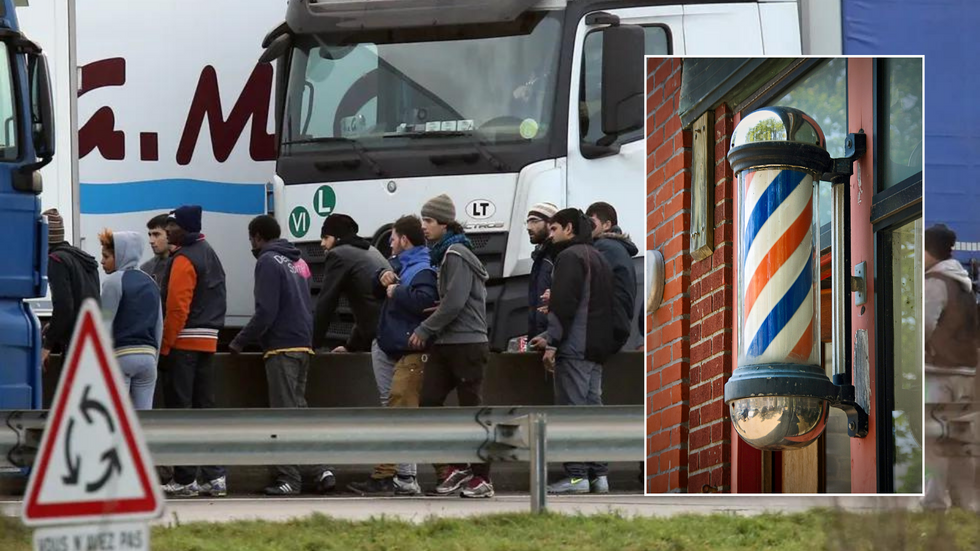Police urged customers to look out for signs of crime while getting their hair cut
Don't Miss
Most Read
Trending on GB News
Cheap haircuts could be a “red flag” or fronts for abuse, modern slavery and migrant smuggling gangs, investigators have warned.
Barbershops – as well as nail bars, car washes and beauty salons – have been known as money-laundering operations in the past, but a surge in numbers of the former and increased illegal immigration has worried crime experts.
Wiltshire Police Detective Superintendent Charlotte Tucker, the officer behind the first child modern slavery prosecution in the UK, noted a range of things to look out for which may indicate a barbershop is part of an illegal operation.
DS Tucker said businesses insisting on taking cash payments only or shops with a “cascade” of different “tired, dishevelled and miserable” workers were a bad sign.

One barber had been paying lorry drivers thousands of pounds to smuggle people over from France
PA/Wikimedia Commons
She said: “If something is really cheap, like a £10 haircut in London, then it can be a red flag that workers may be being underpaid, or paid nothing at all.
“If you’re not paying staff properly then you can undercut the competition. It feeds into a cycle of organised criminals making money by not playing by the rules.”
Justine Currell, the director of Unseen, a modern slavery charity, said the same about cash payments and worker turnover.
The charity flagged 30 cases of modern slavery and labour abuse between 2016 and 2023 – five of those came last year.
LATEST DEVELOPMENTS:
The report linked barbershops to criminal groups which organised small boat crossings
PACurrell pointed to the recent explosion in high street barbershops as a sign of criminal gang activity moving away from nail bars or car washes, which had received more media attention.
918 new barbershops opened in 2023, meaning there are now 17,702 in business across the UK – a 50 per cent increase since 2018, the National Hair and Beauty Federation (NHBF) said.
Most are, of course, legitimate – but the report, published in the Daily Telegraph, pointed to a link between barbershops and human trafficking gangs – like those in charge of small boat crossings.
In 2022, Gul Wali Jabarkhel, an Afghan barber, was found by the National Crime Agency (NCA) to be using his London barbershop as a front for people smuggling.
Jabarkhel had been paying lorry drivers thousands of pounds to smuggle people over from France and Belgium, for which he and three others were jailed for 10 years.
DS Tucker said it was “logical” to link rising people-smuggling rates and the surge in barbershops, which the Association of Certified Anti-Money Laundering Specialists’ George Voloshin said were “very often” run by minority-ethnic crime groups.
Voloshin and Currell pointed to criminals rapidly opening businesses, making as much money as possible, then closing them down as a way of “gaming the system”.
Voloshin described this practice – similar to one outlined by an Evening Standard investigation into American candy shops in Central London – as a “sensible” business decision for criminals looking to launder money.
As well as providing a ‘clean’ income stream for crooks, the rapid open-close of a business would let them to circumvent business tax rates.
An HMRC spokesperson said while it would not discuss “identifiable businesses”, it “routinely” took “robust action to make sure that everyone pays the tax due”.









